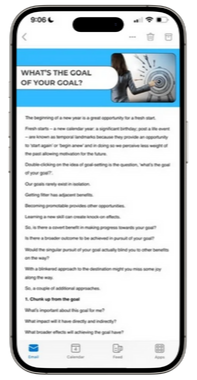#63
Jul 18, 2022Welcome to Weekly Whisper #63
A slightly different format this week.
I was chatting to a client about a difficult conversation they had with an employee and as the dialogue progressed I made several suggestions that, according to the client, were helpful. I thought I’d take the time to share them with you for whenever you might be faced with a difficult conversation.
Separate your position from your personality
On many occasions, our role demands that we ask for or insist on tasks to be completed and commitments to be made. Sometimes it’s easier for us to separate our persona from the responsibility the role demands. Over the years I’m sure we’ve all had to make and take decisions that can have a significant impact on people. It’s usually always a conversation no one likes to have but for the benefit of the organisation/client, we have to have it. Without absolving yourself completely, sometimes it can be easier to present the case as a demand of the role rather than a demand from you personally.
Sit alongside not across
I’m sure we’ve all been in situations when we’ve taken a teenager for a drive so we can have a deeper more personal conversation. There’s something less threatening about sitting alongside someone than sitting across from someone. Going for a walk together would be another example when walking alongside (and probably moving too) the other person creates a different level of energy and dialogue. So, whether it’s physically, mentally, or emotionally can you position the conversation as a conversation alongside each other so we can ‘look’ at the situation together. Sitting across from tends to create a subliminal adversarial position which requires a defensive position.
Consider what might be at stake for them
Usually when someone resists there’s something hidden or bigger at stake for them than the subject of the conversation. It could be that they perceive their competence, their effectiveness, their status, their significance, their worthiness, or something else at stake in the conversation. Seeking to understand this first helps you understand their perspective.
Allow space for them to be seen, heard, acknowledged, or held
I regularly come across conversations where the other person inadvertently is seeking to be seen or heard. Once they feel heard they are more willing to hear. Can you create space - silence, pausing, acknowledgment, etc - to allow that to evolve without the need to tie the conversation up in a nice bow at the end.
Three truths
In any dialogue, there are usually three truths. Their truth. Your truth. And the truth. Finding ways to allow the expression of all three – including yours – can lead to a more meaningful conversation for all concerned. Do you have the compassion to sit with them long enough that they are willing to share their truth? Do you have the courage to share the truth as you see it?
Observation or evaluation
“John works too hard”. Is this an observation or an evaluation? At first glance, it seems like a reasonable observation. Until you realise that the word ‘too’ is an evaluation. It might be the correct evaluation but an evaluation all the same.
Criticism is often how it lands when observation is followed by evaluation. When criticised most people feel some sort of need to defend themselves. Once that is triggered the conversation can soon be over but you’ll keep talking for a while.
Did you miss the Freedom Fridays Episode with Helena Clayton?
Catch up before the new release on Friday.
In Episode #54 Pete chats with Helena Clayton, a leadership development coach, consultant, and facilitator based in the UK. Having started her executive career in a series of strategic and operational HR roles, Helena has experienced first-hand the vast impact that poor and exceptional leadership can make on an organisation and its people.
Helena thrives as an independent consultant and associate working for various clients and in partnership with organisations. Helena works with Roffey Park as part of their Faculty for the MSc in People and Organisational Development and with London Business School as a Programme Director.
Helena’s current research focuses on love in the workplace and Pete and Helena talk about freedom from shades of grey, the cages we put ourselves in without realising, and the philosophy of living life with love at the centre.
|
That's all for this week. I hope you enjoyed Weekly Whisper #63.
Feedback is my fuel so if you have any comments please send me an email at [email protected] and let me know your thoughts.
Cheers
Pete





